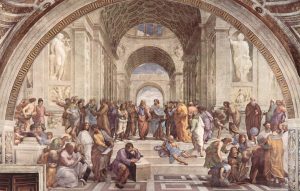What is the history of the Protestant Reformation?
 |
| Image from pixabay |
Introduction
The Protestant Reformation was a significant religious and social movement that took place in Europe during the 16th century. It was initiated by various reformers who challenged the doctrines and practices of the Roman Catholic Church, leading to the establishment of new Protestant Christian denominations. The Reformation had profound effects on the religious, political, and cultural landscapes of Europe, shaping the course of history in the centuries that followed.
Causes of the Reformation
The Protestant Reformation was not a sudden event but rather a culmination of various factors that had been brewing for centuries. Some of the key causes include:
- Corruption in the Catholic Church: The Roman Catholic Church had become increasingly corrupt, with high-ranking clergy engaging in practices such as simony (the buying and selling of church positions) and indulgences (the sale of forgiveness for sins).
- Desire for religious reform: Many individuals within the Church and society at large were dissatisfied with the lack of spiritual depth and moral decay within Catholicism. They sought a return to the teachings of the early Christian Church.
- Growth of humanism: The Renaissance period sparked a revival of classical learning and humanist ideas, which emphasized the worth and potential of individuals. This intellectual movement challenged the authority of the Church and its dogmas.
- Invention of the printing press: The advent of Johannes Gutenberg’s printing press enabled the rapid dissemination of ideas and information. This played a crucial role in spreading Reformation ideas and texts throughout Europe.
Key Figures of the Reformation
The Protestant Reformation was marked by the contributions of numerous influential figures. Some of the key figures include:
- Martin Luther: A German monk, theologian, and professor, Luther is considered the primary catalyst for the Reformation. In 1517, he famously posted his Ninety-Five Theses, criticizing the Catholic Church’s sale of indulgences and calling for reform.
- John Calvin: A French theologian and pastor, Calvin played a significant role in the development of Reformed theology. His teachings on predestination and the sovereignty of God formed the foundation of Calvinism.
- Huldrych Zwingli: A Swiss priest and reformer, Zwingli was instrumental in the Reformation in Switzerland. He advocated for the removal of various Catholic practices and rituals.
- King Henry VIII: The English monarch played a unique role in the Reformation. Motivated by political and personal reasons, Henry VIII broke with the Catholic Church and established the Church of England.
Key Events of the Reformation
The Protestant Reformation was characterized by a series of significant events that shaped its course. Some of the key events include:
- The Ninety-Five Theses (1517): Martin Luther’s act of posting his Ninety-Five Theses on the door of the Wittenberg Castle Church in Germany is often regarded as the starting point of the Reformation. This act challenged the authority of the Church and called for theological debate.
<
li>The Diet of Worms (1521): At the Diet of Worms, a formal assembly of the Holy Roman Empire, Luther was summoned to defend his beliefs. Refusing to recant, he famously declared, “Here I stand; I can do no other.”
Impact of the Reformation
The Protestant Reformation had far-reaching consequences that extended beyond the realm of religion. Some of the significant impacts include:
- Religious divisions: The Reformation led to the fragmentation of Christianity, with the emergence of various Protestant denominations such as Lutheranism, Calvinism, and Anglicanism. These divisions forever changed the religious landscape of Europe and beyond.
- Political changes: The Reformation had profound political ramifications, often tied to the rise of nation-states. Monarchs and rulers exploited the religious divisions to consolidate their power and break away from the authority of the Pope.
- Social and cultural transformations: The Reformation challenged traditional societal structures and values, promoting ideas such as individualism, the importance of education, and the authority of the Bible. These ideas laid the groundwork for the Enlightenment and subsequent social changes.
- Religious wars and conflicts: The Reformation sparked numerous religious wars and conflicts across Europe, including the Thirty Years’ War (1618-1648), which devastated the continent. These conflicts left lasting scars and shaped the course of European history.
Conclusion
The Protestant Reformation was a transformative period in European history, driven by the desire for religious reform and fueled by political, social, and intellectual changes. It challenged the authority of the Catholic Church, leading to the establishment of new Protestant denominations and forever altering the religious, political, and cultural landscapes of Europe. The legacy of the Reformation continues to influence society to this day, shaping our understanding of Christianity, religious freedom, and the relationship between faith and authority.
